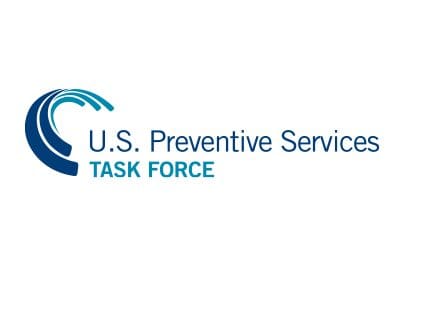USPSTF Releases Recommendations on Aspirin to Prevent Colon Cancer, Heart Disease

 The U.S. Preventive Services Task Force (USPSTF) is recommending that people ages 50-59 years, who have at least a 10% risk of developing cardiovascular disease within the next 10 years and no increased risk for bleeding, take low-dose aspirin regularly to help prevent heart attack, stroke, and colon cancer. Candidates should also have a life expectancy of at least 10 years and be willing to take low-dose aspirin every day for at least 10 years.
The U.S. Preventive Services Task Force (USPSTF) is recommending that people ages 50-59 years, who have at least a 10% risk of developing cardiovascular disease within the next 10 years and no increased risk for bleeding, take low-dose aspirin regularly to help prevent heart attack, stroke, and colon cancer. Candidates should also have a life expectancy of at least 10 years and be willing to take low-dose aspirin every day for at least 10 years.
Taking aspirin solely to help prevent cancer is still not being recommended.
The USPSTF is an independent panel of experts authorized by Congress to make recommendations about specific preventive services for patients with no signs or symptoms. It released a draft of these recommendations in September, 2015. The final recommendations were published April 11 in Annals of Internal Medicine.
For people ages 60-69 years who have at least a 10% risk of developing cardiovascular disease within the next 10 years, the benefits of regular aspirin use are not as clear. The Task Force recommends people in this age group discuss taking daily low-dose aspirin with their doctor.
The Task Force notes that there was not enough evidence to make a recommendation for people younger than age 50 or older than age 69.
Regular use of aspirin can cause internal bleeding, and is more dangerous for some people than others. Anyone considering taking daily low-dose aspirin should talk to their doctor first.
We Highlight Successes, Leaders, Best Practices, And Tools That Are Making An Impact In The Nationwide Movement To Reach 80% Screened For Colorectal Cancer.
Do you have a suggestion for a future blog topic? We welcome you to share your suggestions by emailing [email protected].
Blog Policy
Opinions expressed in these blog posts are that of the author and do not represent policies of the National Colorectal Cancer Roundtable or the author’s institution.
Our staff moderate all comments on the 80% Blog. While we do not censor based on point of view, we will delete or edit comments that are offensive or off topic. Click here to view full version.
© 2024 American Cancer Society National Colorectal Cancer Roundtable. All rights reserved.


